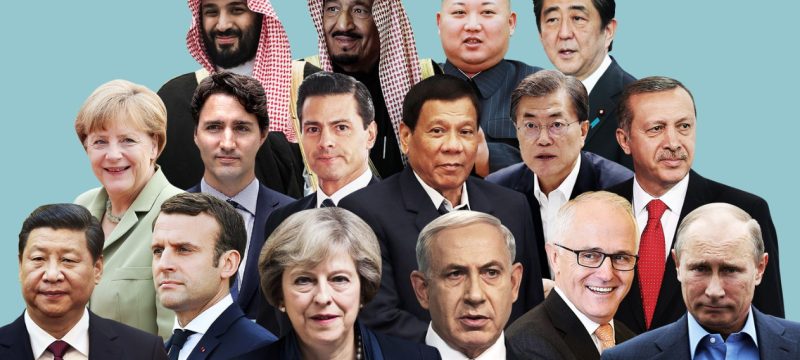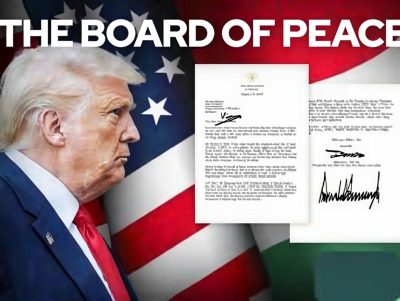As the United States gears up for its 2024 presidential election, the world watches with bated breath. Democratic Vice President Kamala Harris and Republican former President Donald Trump are running neck-and-neck in a race that could shape the trajectory of global politics for years to come. The influence of the U.S. presidency on global affairs is vast, from decisions impacting international security and trade to stances on climate change and technology.
So, who would world leaders prefer to see in the White House? Let’s look at how prominent leaders across the globe view Harris and Trump as potential U.S. presidents.
Also Read: Trump’s Fraud Claims Raise Concerns of Another Contested US Election
Russia: Vladimir Putin
Putin is likely to prefer a Trump presidency, as Trump’s skepticism towards NATO and Western alliances could benefit Russia’s interests. Trump’s reluctance to fully support Ukraine militarily aligns with Putin’s goals of reducing Western influence in the region. A Harris presidency, on the other hand, would likely maintain a firm stance on Russia, continuing the Biden administration’s support for Ukraine and sanctions against Moscow.
China: Xi Jinping
Xi Jinping might lean slightly toward Harris for the stability and predictability her presidency could offer in U.S.-China relations. While Trump’s trade war and tough rhetoric against China strained relations, some in Beijing might see advantages in Trump’s unpredictability, which could present opportunities to assert China’s influence without the constraints of a coordinated U.S. policy. However, Harris would likely uphold the Biden administration’s more measured approach, which may be preferable for long-term stability.
Israel: Benjamin Netanyahu
Netanyahu has strong ties to Trump, who made several pro-Israel moves, such as recognizing Jerusalem as Israel’s capital and brokering the Abraham Accords. Trump’s alignment with Netanyahu’s policies makes him a preferred candidate for the Israeli prime minister. Harris, while likely supportive of Israel, may push for a more balanced U.S. role in the Israeli-Palestinian conflict, which could complicate relations slightly compared to Trump’s unconditional backing.
Europe and NATO
European leaders, including Germany’s Olaf Scholz and France’s Emmanuel Macron, are likely to favor Harris, who would continue supporting NATO and climate initiatives. Trump’s past criticisms of NATO and threats to withdraw U.S. support raised alarms across Europe. A Harris presidency promises greater cooperation on defense, climate change, and collective security, making her a more appealing choice for European leaders seeking stability in transatlantic relations.
India: Narendra Modi
Modi has built strong relationships with both Trump and Biden. While Trump’s less interventionist stance on internal affairs might appeal to Modi’s government, Harris’s steady diplomatic approach would likely ensure continued strong U.S.-India ties, especially in defense and technology sectors. Harris, with her Indian heritage, might also foster deeper cultural and diplomatic connections, offering continuity and potential growth in bilateral relations.
South Korea: Yoon Suk Yeol
Yoon Suk Yeol is expected to favor Harris, as she would likely continue Biden’s commitment to strengthening the U.S.-South Korea alliance, crucial in countering North Korea and China. Trump’s past demands for increased financial contributions from South Korea for U.S. military presence strained relations, and Yoon may see Harris as a more reliable partner for maintaining regional stability.
Japan: Fumio Kishida
Kishida, like Yoon, would likely prefer Harris, given Trump’s history of tariffs and demands for Japan to increase its defense spending. Harris would offer policy consistency, which Japan values as it navigates tensions with China and North Korea. Kishida would likely seek to build on the Biden administration’s positive relations, particularly in areas like security and economic cooperation.
Australia: Anthony Albanese
Albanese would likely support Harris, especially on environmental issues. Australia, committed to climate action, would find Harris aligned with its goals, while Trump’s environmental policies could reverse progress. Additionally, Trump’s aggressive stance on China could disrupt Australia’s trade relations, making Harris the more appealing candidate for stability and cooperation.
Global Stakes
For many world leaders, a Harris presidency represents continuity with the Biden administration’s diplomacy, predictability, and collaborative international policies. In contrast, Trump’s return could bring opportunities for some but also heighten risks of unpredictability, disruptions in alliances, and challenges in addressing global issues like climate change, security, and trade. The outcome of this election will shape not only the U.S.’s future but the broader global political landscape for years to come.









